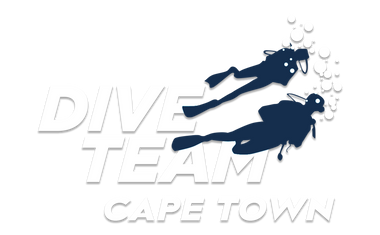Which Path Is Right for You?
There has always been a lot of confusion around the difference between Divemaster and Master Scuba Diver. Are they similar? Which one should you do first? What are the benefits of each? Let’s break down the requirements and key differences so you can decide which path is right for your diving journey.
While both certifications represent a high level of diving experience, Master Scuba Diver stands above Divemaster in terms of skill and dedication. It’s the highest non-professional rating in recreational diving, and it’s often seen as a sign of a truly passionate and well-rounded diver. And here’s the best part: becoming a Master Scuba Diver doesn’t stop you from going pro—it actually makes you a better guide or instructor later on.
If you pursue your Instructor rating after becoming a Master Scuba Diver, you’ll already have the required specialties under your belt, meaning you’ll be qualified to teach those specialties right away, adding value to your professional offerings from day one.
Let’s take a closer look at each path.
🧑🏫 Divemaster (Professional Level)
To become a Divemaster, you must:
- Be certified in First Aid and Rescue Diver
- Log at least 40 dives before starting
- Complete the Divemaster course, which includes:
- Assisting instructors with student divers
- Supervising certified divers
- Conducting dive briefings and guiding dives
- Managing dive logistics and handling emergencies
Divemaster is the first professional step in scuba diving. It trains you to support dive operations, guide certified divers, and assist instructors with training. You learn a lot about leadership and logistics—but less about specialty diving itself.
🥇 Master Scuba Diver (Elite Recreational Level)
To become a Master Scuba Diver, you must:
- Be certified in First Aid and Rescue Diver
- Log at least 50 dives
- Complete five specialty courses
The Master Scuba Diver program is all about personal skill, exploration, and mastery. It’s a true deep-dive (pun intended) into the diverse world of scuba—without the shortcut options often seen in fast-tracked professional courses. Because of this, many dive centers around the world see Master Scuba Divers as more well-rounded and experienced than freshly certified Divemasters.
Let’s explore the five specialty courses you’ll need to complete—and why they matter so much:
🔦 1. Deep Diving
Go beyond 18m and learn to safely manage depth-related risks like narcosis, air consumption, and no-deco limits. This is one of the most critical courses for expanding your range and your dive planning skills.
🧭 2. Underwater Navigation
Say goodbye to surfacing every 10 minutes to get your bearings. This specialty sharpens your compass skills and environmental awareness so you can confidently lead your own dives—even in unfamiliar conditions.
⚡ 3. Enriched Air (Nitrox)
Extend your bottom time and shorten surface intervals by diving with oxygen-enriched air. Nitrox is a must-have certification for any serious diver, especially if you’re doing repetitive or deep dives.
🧰 4. Search & Recovery or Wreck Diving
Learn how to find, recover, and lift lost items using search patterns and lift bags—or safely explore and navigate through wrecks. These specialties are loaded with practical skills you won’t find in entry-level courses.
🌌 5. Night Diving or Peak Performance Buoyancy
Gain control and confidence in low-visibility environments, or perfect your trim and air efficiency. These specialties refine your technique and build your awareness underwater.
Each specialty adds real-world knowledge, technical skills, and self-reliance—making you a more confident diver and a better future dive leader. And if you go on to become an instructor, you’ll be able to teach the specialties you’ve already mastered, giving you a major head start in your career.
✈️ What Dive Centers Around the World Think
While Divemasters are trained to work in the industry, many dive centers actually view Master Scuba Divers as more experienced. Why? Because there are no shortcuts. You must earn your stripes through logged dives and multiple specialty certifications. It shows that you’re not just trained—you’re passionate.
So even if your goal is to become a Divemaster or Instructor one day, taking the Master Scuba Diver path first will make you better at it. You’ll be more skilled, more knowledgeable, and more valuable in the long run.
🤿 Side-by-Side Comparison
| Divemaster | Master Scuba Diver | |
|---|---|---|
| Path | Professional | Recreational Elite |
| Requires Rescue Diver | ✅ | ✅ |
| Requires First Aid | ✅ | ✅ |
| Specialty Courses | ❌ (Optional) | ✅ (Minimum 5) |
| Logged Dives | 40+ | 50+ |
| Teaches Students | ✅ Assists instructors | ❌ For personal growth |
| Guides Certified Divers | ✅ | ❌ |
| Seen As a Leader | Professionally | Recreationally & technically |
| Time Commitment | Moderate to High | Moderate |
| Purpose | Career or job | Skill, adventure, recognition |
| Shortcut? | Yes (fast-track options exist) | No—must earn it |
| Can Teach Specialties? | ❌ | ✅ (Once you’re an Instructor) |
💬 Final Thoughts
If you're looking to work in diving, Divemaster is your gateway.
If you want to master diving, explore your limits, and be recognized as one of the most skilled recreational divers in the world, Master Scuba Diver is the way to go.
And if your goal is to become a dive instructor, combining both paths—starting with Master Scuba Diver—will not only make you better at your job, it will let you teach a wider range of specialties right out the gate.
Master the dive. Then lead the way.

